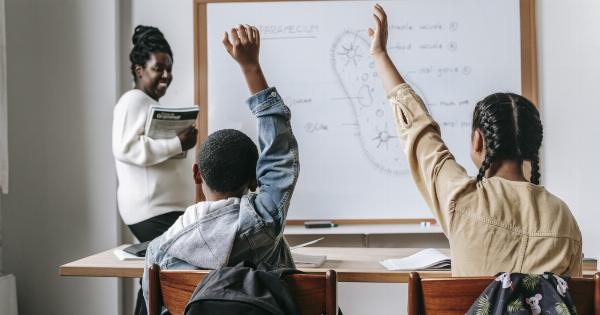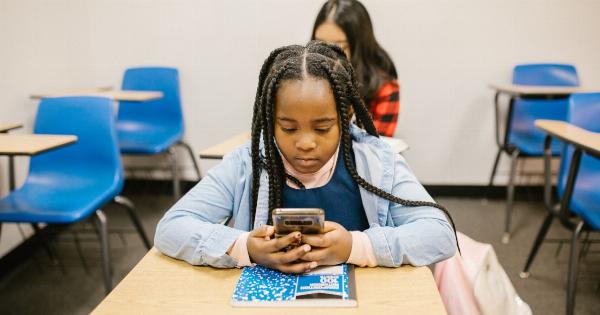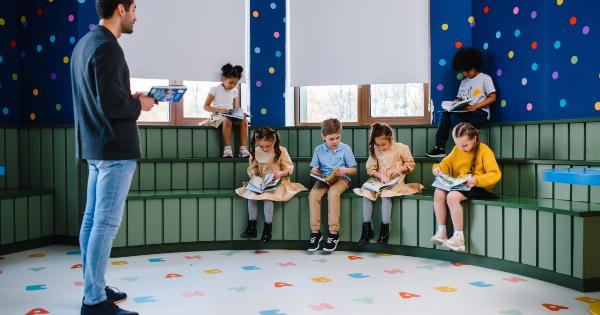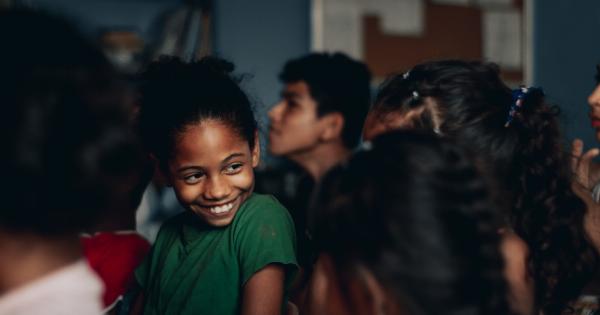Teenagers, a transitional age group, often face various challenges and changes in their lives. One of the most significant aspects of their lives is schooling.
Schooling plays a crucial role in the development and growth of teenagers, shaping their perspectives, attitudes, and experiences. Understanding teenagers’ experiences and views on schooling is vital in order to provide them with an educational environment that meets their needs and fosters their overall well-being.
The Impact of Schooling on Teenagers
Schooling has a profound impact on teenagers, both academically and socially. Academically, it provides them with knowledge and skills necessary for future success.
It helps them enhance their critical thinking abilities, problem-solving skills, and expands their intellectual horizons. Socially, schooling allows teenagers to interact with their peers, fostering the development of crucial social and communication skills.
Schooling also offers a platform for teenagers to explore their interests and talents, providing them with opportunities for personal growth and self-discovery.
Teenagers’ Perspectives on Schooling
Teenagers’ perspectives on schooling vary widely. Some teenagers may view schooling as an exciting adventure, full of learning opportunities and social interactions.
They may actively engage in their studies, participating in extracurricular activities and taking advantage of academic resources. On the other hand, some teenagers may find schooling to be challenging and uninspiring. They may struggle with certain subjects or feel a lack of motivation to excel academically.
These differing perspectives can influence their experiences and overall satisfaction with their schooling.
Academic Pressure and Stress
One common experience among teenagers in relation to schooling is academic pressure and stress. As they progress through their education, teenagers may face increasingly demanding expectations from their teachers, parents, and themselves.
The pressure to achieve high grades and excel academically can lead to stress and anxiety. This can have negative effects on their mental health and overall well-being. Schools and educators should be aware of these pressures and provide necessary support systems to help teenagers cope with academic stress.
Social Dynamics at School
Schooling also involves navigating social dynamics and peer relationships. For many teenagers, interacting with peers forms a significant part of their school experience.
Some teenagers may find it easy to make friends and thrive socially, while others may struggle with social interactions, leading to feelings of isolation or exclusion. Schools can play a crucial role in creating inclusive and supportive environments, promoting healthy social relationships among teenagers, and addressing issues such as bullying.
Engagement and Disengagement
Teenagers’ engagement levels in schooling can greatly impact their experiences and outcomes. Engaged teenagers show higher levels of motivation, enjoyment, and enthusiasm towards their studies.
They actively participate in classroom discussions, seek out additional learning opportunities, and take ownership of their education. On the other hand, disengaged teenagers may exhibit signs of boredom, lack of interest, and decreased participation in school-related activities.
Understanding the factors that contribute to both engagement and disengagement is crucial for educators to design and implement strategies that promote student engagement.
Curriculum and Relevance
One aspect that affects teenagers’ experiences with schooling is the relevance and perceived value of the curriculum. Some teenagers may feel that the curriculum does not align with their interests or future goals.
They may question the applicability of certain subjects or the lack of emphasis on practical skills. Incorporating relevant and engaging material into the curriculum, offering a variety of elective courses, and providing opportunities for career exploration can enhance teenagers’ experiences and make schooling more meaningful.
The Role of Teachers
Teachers play a crucial role in teenagers’ schooling experiences. A supportive and engaging teacher can inspire and motivate teenagers to achieve their potential.
On the other hand, negative experiences with teachers can lead to disengagement, lack of interest, and even resentment towards schooling. Teachers should strive to create inclusive and stimulating classroom environments, establish positive relationships with their students, and be sensitive to individual needs and learning styles.
Technology and Teenagers
The role of technology in teenagers’ lives cannot be ignored when exploring their experiences and views on schooling. Technology has become an integral part of their daily routines, influencing how they learn, communicate, and access information.
Incorporating technology into the classroom can enhance teenagers’ engagement and provide them with valuable resources for learning. However, it is essential to address the potential negative impacts of excessive screen time and promote responsible and balanced technology use.
Parental Involvement and Support
Parents play a significant role in teenagers’ schooling experiences. Their involvement and support can greatly influence teenagers’ attitudes towards schooling.
Encouragement, active participation in school-related activities, and open communication between parents and teenagers are essential components of a positive and supportive home-school partnership. Schools should strive to involve parents in decision-making processes and provide opportunities for parental engagement.
Inclusive Education and Special Needs
Inclusive education involves providing support and accommodations for students with special needs. It promotes an environment where all teenagers can access quality education, regardless of their abilities.
Understanding the experiences and views of teenagers with special needs is critical to ensure their inclusion and cater to their specific educational requirements. Schools should provide necessary support services, individualized learning plans, and foster a culture of acceptance and inclusion.
The Future of Schooling
The future of schooling holds numerous possibilities and challenges. As technology continues to advance, the traditional concept of schooling may evolve.
Blended learning, personalized learning, and digital platforms are becoming more prevalent, offering new opportunities for education. It is crucial to prepare teenagers for the future by equipping them with critical thinking skills, adaptability, and digital literacy.
Schools should continuously evolve their teaching methods and curriculum to meet the changing needs of teenagers and the demands of the globalized world.
Conclusion
The experiences and views of teenagers towards schooling are diverse and can greatly affect their overall well-being and academic success.
By exploring and understanding these experiences, educators, parents, and policymakers can work together to create educational environments that promote engagement, motivation, and personal growth. Effective collaboration between schools, teachers, parents, and students is essential in shaping the future of schooling and ensuring that it meets the needs and aspirations of teenagers.





























